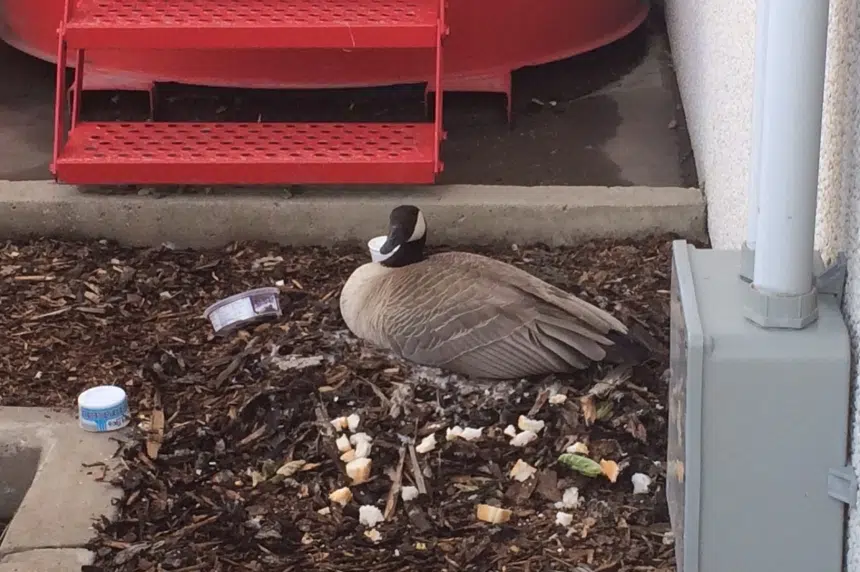Regina drivers are probably seeing and hearing them a lot more often this summer: Gaggles of geese crossing and honking their way from one sidewalk to the next, right through traffic.
“The geese are crossing the road, because it becomes a learned behaviour. If they get on the road a little bit and (drivers) are stopping, they perceive it as ‘cool, this is normal behaviour. I’m going to continue across,'” Wascana Centre ecologist Sarah Romuld explained.
She joined the 980 CJME Greg Morgan Morning Show to talk about the frequent crossings, like at Broad Street and other roads around Wascana Park.
But more geese are dying on busier, larger roads, because geese have picked up crossing as a learned behaviour, Romuld said; drivers aren’t necessarily able to stop on bigger, faster roadways, and they wind up hitting and killing the birds.
The ecologist also confirmed that there are larger groups of geese venturing out onto the city’s roads, whether they’re full-grown adults, small goslings or birds that aren’t quite at full maturity yet.
The larger groupings are a survival strategy, she said, aimed at foiling coyotes and off-leash dogs the geese encounter.
“They see it as, ‘if we gang up, we’re a larger number, (it’s) harder for them to get us.” Romuld said. What’s new this year is how the birds are joining forces.
Instead of individual goose families (also called broods) keeping to themselves, they’re joining — and crossing — together into what’s called gang broods.
“Instead of having a couple families, we have four monstrous ones throughout the park, which gives the perception of there being more geese,” Romuld said. “It’s a strength-in-numbers mentality.”
What does that mean for drivers who happen upon a gang of geese waddling down the road?
Romuld advised against plowing into them and causing more goose deaths.
“If the goose is on the road, and in the middle of your lane, you can continue — not at full speed — but you can continue going and even honk, and they will get out of the way.”
A goose that encounters a car or truck will be afraid, because the vehicle is much bigger, she summarized.
And if the birds are edging toward the road, “if they’re not in your path, but they’ve just started to step on the road, continue going. That will deter them from crossing,” Romuld said.











